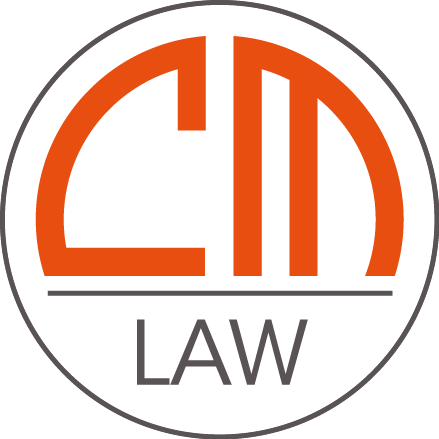It’s discreet, but central. Quiet, but formidably strategic. The Luxembourg compliance officer long ago swapped his austere image of “internal controller” for that of a key player in the stability of the country, whose financial solidity depends as much on its tax system as its reputation for compliance. Behind every transaction, every client onboarding, every fund launch or company structuring, there is – often – a watchful eye that anticipates, documents and alerts. This is the real, but often overlooked, role of the compliance officer in Luxembourg in 2025.
A vigilant state, an expanding business
With almost 60,000 entities active in the banking, financial and corporate sectors (CSSF, RAIF, SICAV, SPV, PSF, etc.), Luxembourg is one of the countries in the world with one of the highest regulatory densities per square meter. This context puts considerable pressure on compliance professionals.
In 2023, it is estimated that there will be over 4,500 compliance officers working in Luxembourg, across all sectors – a figure that has risen by 28% over five years. This increase has been stimulated by successive waves of European (AML 5 and 6, DAC 6, CSRD, DORA) and international (FATF, OFAC, OECD) regulations, as well as by the growing demands of local institutions such as the CSSF, the CAA and the Ministry of Justice.
A daily routine of vigilance, reporting and diplomacy
The compliance officer in Luxembourg no longer simply proofreads internal policies. He or she steers entire prevention systems, checks the traceability of flows, verifies the absence of conflicts of interest, trains employees, conducts enhanced due diligence, drafts reports to the authorities and – more often than one might think – refuses customers or alerts on sensitive operations.
The year 2022 was marked by an explosion in reports to the Cellule de Renseignement Financier (CRF): more than 76,000 suspicious transaction reports were recorded, up 33% on 2020. A large proportion came from banking institutions, but corporate sector professionals (trustees, lawyers, auditors) are also on the rise.
“We have moved from the role of compliance technician to that of risk strategist. We have to deal with sometimes contradictory pressures: protecting the firm, complying with the law, not harming the business, and avoiding any reproach of complacency.” – Head of compliance for a Luxembourg private bank.
Case studies: gray zones and red lines
Example 1: Dubai real estate fund
A Luxembourg-domiciled asset management company launches an investment fund in real estate assets located in the Emirates. The end customer is an Emirati family business with opaque structures. The compliance officer identifies that the beneficial owner is a former Minister of Energy, under investigation for misappropriation of public funds. Result: onboarding refused. Cost to the manager? Around €400,000 in costs already incurred. Reputational gain? Priceless.
Example 2: Crypto start-up with offshore financing
In 2021, a Luxembourg company in the blockchain sector is financed via a vehicle based in the Cayman Islands. The compliance officer discovers that the investor is also linked to another entity classified as “high risk” by the World Bank. Enhanced due diligence is triggered, followed by a report to the FIU. The company is then audited by the CSSF. The structure survived, but the case made the entire sector aware of the risks of decentralized finance.
Example 3: Beneficial owner fraud
In 2023, a Luxembourg trustee was implicated in an investigation into a scheme to circumvent the register of beneficial owners (RBE). Thanks to a cross-check conducted by the compliance officer, a nominee used in 47 companies was identified. A criminal investigation was opened. The whistle-blower? A junior compliance officer, trained six months earlier.
A supervised and empowered role
Since 2018, the AML 5 directive requires every regulated entity to have a Professional Compliance Officer (RC), and sometimes a Legal Compliance Officer (RR). These functions must be “effective”, exercised by experienced individuals, resident in Luxembourg, and independent. Failure to comply with these requirements can result in administrative fines of up to 5 million euros, or even withdrawal of authorization.
In 2024, the CSSF reiterated in a circular that the compliance officer’s role could not be delegated, even when using automated tools or partial outsourcing. Artificial intelligence cannot replace the need for judgment, analysis and traceability of internal decisions.
Compliance and attractiveness: between paradox and strategy
Some executives denounce over-regulation as a threat to the country’s attractiveness. Yet it is precisely this rigor that makes Luxembourg a hub of choice for demanding institutional investors.
💬 “It’s better to say no to a dubious client than to say goodbye to a CSSF license. – Head of a support PFS.
Today, compliance is a commercial weapon. In calls for tender, ESG, KYC and AML criteria are becoming as strategic as financial performance. International investors are no longer willing to risk their reputations in lax markets. Against this backdrop, the compliance officer is becoming an ambassador of probity, and his or her weight on management committees is growing all the time.
The challenge of talent and training
Luxembourg’s compliance success comes at a price: a shortage of talent. By 2025, according to the ACA and ALCO, over 40% of regulated companies will be struggling to recruit experienced compliance profiles.
The country is focusing on higher education (Master in Compliance at the University of Luxembourg), continuing education (IFBL, House of Training), and professional certification (e.g. CAMS, ICA, etc.). But the need remains urgent, particularly in the non-financial sectors (real estate, art, crypto-assets), which are currently targeted by the extension of European AML regimes.
Conclusion: a business of the future, at the heart of Europe’s risks
The Luxembourg compliance officer is no longer simply a rule-keeper. They are lawyers, analysts, mediators, strategic advisors and sometimes even whistle-blowers. In a Europe subject to geopolitical, energy and digital pressures, he is an essential part of the ethical defense of the financial markets.
Although he sometimes embodies a form of “rigidity”, he is also the person who saves his company from costly mistakes, devastating scandals and irreversible sanctions.
He may not make the headlines. But he keeps watch in the shadows. And it’s often thanks to him that Luxembourg sleeps soundly.
Sources :
- ACA – Association des Compagnies d’Assurances et de Réassurances. (2023). Overview of compliance issues in the Luxembourg insurance industry. https://www.aca.lu
- ALCO – Association Luxembourgeoise des Compliance Officers. (2024). Annual Survey: Compliance Trends in Luxembourg. https://www.alco.lu
- Luxembourg Central Bank. (2023). National financial statistics. https://www.bcl.lu
- Commission de Surveillance du Secteur Financier (CSSF). (2024). Annual report 2023. https://www.cssf.lu/fr/document/rapport-annuel-2023/
- Commission de Surveillance du Secteur Financier (CSSF). (2024, January). Circular CSSF 24/850 – Role of the compliance officer and internal governance. https://www.cssf.lu
- Commission de Surveillance du Secteur Financier (CSSF). (2023, October). AML/CFT Statistics 2022-2023. https://www.cssf.lu/fr/statistiques/aml/
- CRF – Cellule de Renseignement Financier (Financial Intelligence Unit). (2023). Annual activity report 2022. https://mj.gouvernement.lu/fr/organisations-amelioration-justice/crf.html
- Directive (EU) 2015/849 of the European Parliament and of the Council of 20 May 2015 on the prevention of the use of the financial system for the purpose of money laundering or terrorist financing (AMLD5). Official Journal of the European Union, L 141.
- Directive (EU) 2018/843 of the European Parliament and of the Council of May 30, 2018 (AMLD6). Official Journal of the European Union, L 156.
- EUR-Lex. (2023). Proposal for a directive to combat money laundering (AML Package 2023). https://eur-lex.europa.eu/legal-content/FR/TXT/?uri=CELEX:52023PC0412
- European Banking Authority (EBA). (2023). Guidelines on the role of the compliance function. https://www.eba.europa.eu
- FATF – Financial Action Task Force. (2023). Mutual Evaluation Report of Luxembourg. https://www.fatf-gafi.org
- House of Training. (2024). Training catalog – Compliance, AML, ESG. https://www.houseoftraining.lu
- Lëtzebuerger Journal. (2023, December 17). Compliance officers: professionals who say no to protect their company. https://journal.lu
- Ministry of Justice of the Grand Duchy of Luxembourg. (2024). Register of beneficial owners: compliance report. https://justice.public.lu
- Paperjam (2024, February 15). Luxembourg’s shortage of experienced compliance officers. https://paperjam.lu
- University of Luxembourg. (2023). LL.M. in Compliance and Regulation. https://wwwen.uni.lu



